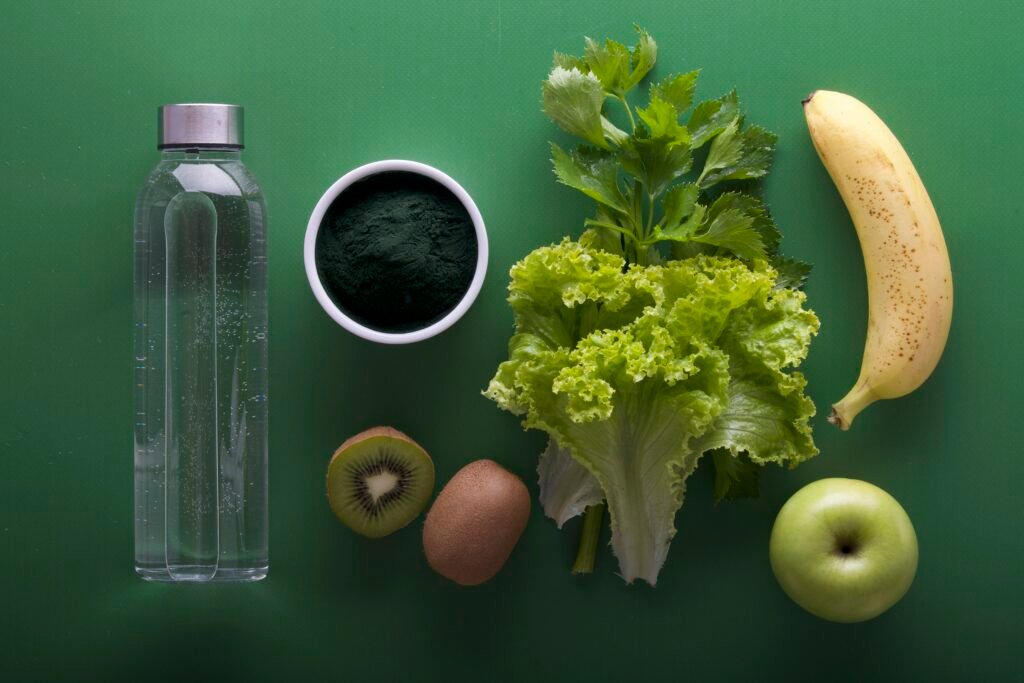Are you searching for ways to slow down the aging process and maintain your youthful charm? Look no further! In this article, we will explore the most effective daily habits that can help you turn back the clock. From nourishing your body with nutritious foods to adopting a consistent skincare routine, these simple yet powerful habits are your secret weapon against the unstoppable march of time. Get ready to unlock the door to timeless beauty and embrace a life filled with vitality and joy.

Sleep
Maintaining a regular sleep schedule
Getting enough quality sleep is essential for maintaining overall health and slowing down the aging process. One of the best habits you can develop is sticking to a regular sleep schedule. By going to bed and waking up at the same time every day, you help regulate your body’s internal clock, also known as the circadian rhythm. This consistency allows your body to optimize important processes such as hormone regulation, cellular repair, and memory consolidation.
Getting sufficient sleep
In addition to sticking to a regular sleep schedule, it is crucial to prioritize getting sufficient sleep. Most adults need between 7 to 9 hours of sleep each night, but individual needs may vary. Consistently lacking sleep can have detrimental effects on your health, both physically and mentally. Adequate sleep helps to reduce stress, improve cognitive function, support immune function, and promote healthy skin and hair. Make it a priority to establish a bedtime routine that allows you to get the right amount of sleep your body needs.
Creating a comfortable sleep environment
Creating a comfortable and relaxing sleep environment is another crucial aspect of promoting restful sleep. Make sure your bedroom is cool, dark, and quiet. Invest in a comfortable and supportive mattress and pillow that align with your specific sleep needs. Consider using blackout curtains to block out any sources of external light and use earplugs or a white noise machine if necessary to drown out any disturbing noises. Your sleep environment should be a sanctuary that promotes relaxation and tranquility.
Avoiding electronic devices before bedtime
In today’s digital age, it can be tempting to engage with electronic devices, such as smartphones, tablets, or laptops, right before bed. However, the blue light emitted by these devices can interfere with your body’s natural production of melatonin, the hormone that helps regulate sleep-wake cycles. To promote better sleep, it is recommended to avoid electronic devices at least 1 to 2 hours before bedtime. Instead, engage in calming activities like reading a book, taking a warm bath, or practicing relaxation techniques.
Practicing relaxation techniques
Incorporating relaxation techniques into your nightly routine can greatly improve the quality of your sleep and, in turn, slow down the aging process. Activities such as deep breathing exercises, progressive muscle relaxation, or guided meditation can help calm your mind, reduce stress, and prepare your body for sleep. Experiment with different techniques to find what works best for you and make it a habit to engage in these practices before bed. Your body and mind will thank you for it.
Nutrition
Eating a balanced diet
Maintaining a balanced diet is essential for overall health and longevity. Opting for a variety of nutrient-dense foods can help slow down the aging process. Include plenty of fruits, vegetables, whole grains, lean proteins, and healthy fats in your daily meals. These foods provide essential vitamins, minerals, antioxidants, and fiber that your body needs to function optimally. Aim to fill your plate with a variety of colors to ensure you are getting a wide range of nutrients.
Consuming antioxidant-rich foods
Antioxidants play a crucial role in combating oxidative stress and minimizing cellular damage caused by free radicals, which are by-products of normal bodily processes and environmental factors. Including antioxidant-rich foods in your diet can help protect your cells and slow down the aging process. Berries, leafy greens, nuts, and seeds are excellent sources of antioxidants. Additionally, spices like turmeric and cinnamon also have potent antioxidant properties.
Including omega-3 fatty acids in the diet
Omega-3 fatty acids are a type of healthy fat that are known for their numerous health benefits, including reducing inflammation. Incorporating foods rich in omega-3 fatty acids, such as fatty fish like salmon, mackerel, and sardines, as well as chia seeds, flaxseeds, and walnuts, can support brain health, heart health, and promote healthy skin. If you find it challenging to consume enough omega-3s through diet alone, consider taking a high-quality fish oil or algae-based supplement.
Limiting processed and sugary foods
Processed foods and those high in added sugars can contribute to inflammation, weight gain, and various health issues. To slow down the aging process, it is important to limit your consumption of these foods. Instead, opt for whole, unprocessed foods whenever possible. Choose natural sweeteners like honey or maple syrup over refined sugars, and try to avoid foods that come in packages with long lists of artificial ingredients.
Drinking plenty of water
Staying hydrated is vital for maintaining overall health and promoting youthful-looking skin. Water helps to flush toxins from your body, supports digestion, and keeps your skin hydrated and supple. Make it a habit to drink plenty of water throughout the day, aiming for at least 8 glasses or more depending on your activity level. Keep a reusable water bottle with you at all times as a reminder to stay hydrated.
Moderating alcohol consumption
While enjoying a glass of wine or your favorite cocktail can be a pleasant part of socializing, excessive alcohol consumption can have negative effects on your health and accelerate the aging process. Alcohol dehydrates the body, promotes inflammation, and can damage organs such as the liver. To slow down aging, it is important to drink alcohol in moderation. Stick to recommended guidelines, which typically suggest no more than 1 drink per day for women and 2 drinks per day for men.
Exercise
Engaging in regular aerobic exercises
Regular aerobic exercise, such as walking, jogging, biking, or swimming, is essential for maintaining cardiovascular health, managing weight, and slowing down the aging process. Aim for at least 150 minutes of moderate-intensity aerobic exercise or 75 minutes of vigorous-intensity aerobic exercise per week. Find activities that you enjoy and make it a habit to incorporate them into your daily routine.
Incorporating strength training
In addition to aerobic exercise, strength training is crucial for maintaining muscle mass, bone density, and overall strength. As we age, our muscle mass naturally declines, but incorporating resistance exercises can help slow down this process. Aim for two or more days of strength training per week, targeting all major muscle groups. You can use weights, resistance bands, or even your body weight to perform exercises like squats, lunges, push-ups, and planks.
Practicing flexibility and balance exercises
Flexibility and balance exercises are often overlooked but are vital for maintaining mobility and preventing injuries as you age. Activities like yoga, Pilates, or tai chi can improve flexibility, posture, and balance. Additionally, these exercises promote relaxation and stress reduction. Consider including stretching and balance exercises in your daily routine to maintain a strong and flexible body.
Maintaining an active lifestyle
Incorporating physical activity into your daily life goes beyond structured exercise sessions. Aim to lead an active lifestyle by finding ways to move more throughout the day. Take the stairs instead of the elevator, walk or bike to nearby destinations, or consider using a standing desk if you have a sedentary job. Every step counts, so look for opportunities to stay active and avoid prolonged periods of sitting.
Avoiding prolonged sitting
Sitting for long periods has been linked to various health concerns, including an increased risk of chronic diseases and accelerated aging. Even if you engage in regular exercise, excessive sitting can still be harmful. Make it a point to take regular breaks from sitting throughout the day. Stand up, stretch, or take a short walk to increase blood circulation and reduce the negative effects of prolonged sitting.
Stress Management
Practicing mindfulness and meditation
Stress is a common factor that can accelerate the aging process. Engaging in mindfulness and meditation practices can help reduce stress levels, promote relaxation, and improve overall well-being. Schedule a few minutes each day to practice deep breathing exercises, guided meditation, or mindfulness techniques. By focusing on the present moment and quieting your mind, you can cultivate a sense of peace and resilience.
Engaging in stress-relieving activities
There are various activities that can help relieve stress and promote a sense of calm. Find what works best for you and make it a regular part of your routine. Some popular stress-relieving activities include taking a warm bath, practicing yoga or tai chi, listening to calming music, engaging in creative pursuits such as painting or knitting, or spending time in nature. Experiment with different activities and find what brings you joy and relaxation.
Creating a support system
Having a strong support system is crucial for managing stress and maintaining a positive mindset. Surround yourself with supportive friends and family members who uplift you and provide emotional support. Participate in social activities and engage in meaningful conversations with your loved ones. Additionally, consider seeking professional help if you are feeling overwhelmed or struggling with chronic stress. A therapist or counselor can provide valuable guidance and support.
Setting realistic goals
Setting realistic goals can help reduce stress and promote a sense of accomplishment. Break down your goals into smaller, achievable steps and focus on progress rather than perfection. By setting realistic expectations for yourself, you can avoid unnecessary stress and maintain a positive mindset. Celebrate your achievements along the way and remember that it’s okay to ask for help or make adjustments if needed.
Taking regular breaks
Allowing yourself regular breaks throughout the day can significantly reduce stress and improve productivity. Taking short breaks to stretch, go for a walk, or engage in a quick relaxation exercise can help clear your mind, reduce muscle tension, and improve focus. Incorporate breaks into your daily routine, even during busy periods, and prioritize self-care to prevent burnout and maintain a positive mindset.

Sun Protection
Using sunscreen daily
Protecting your skin from harmful UV rays is crucial for maintaining healthy, youthful-looking skin and preventing premature aging. Apply a broad-spectrum sunscreen with an SPF of at least 30 every day, even on cloudy days. Make sure to cover all exposed areas of your body, including your face, neck, and hands. Reapply sunscreen every two hours, or more frequently if you are sweating or swimming.
Wearing protective clothing and accessories
Alongside sunscreen, wearing protective clothing and accessories can provide additional defense against the sun’s damaging rays. Opt for lightweight, long-sleeved shirts, pants, and wide-brimmed hats whenever possible. Sunglasses with UV protection can also help protect your eyes from harmful UV rays. Consider investing in sun-protective clothing made with UPF (Ultraviolet Protection Factor) fabric for added sun protection.
Seeking shade during peak sun hours
When the sun’s rays are strongest, usually between 10 am and 4 pm, it is crucial to seek shade whenever possible. This is especially important during hot summer months or when you are in areas with intense sunlight. Limit your time in direct sunlight during these peak hours, as prolonged exposure can increase your risk of sunburn, skin damage, and other harmful effects of UV radiation.
Avoiding tanning beds
Tanning beds emit ultraviolet radiation, which can significantly damage your skin and increase the risk of skin cancer. Avoiding tanning beds altogether is essential for your overall health and preserving the youthful appearance of your skin. If you desire a tan, consider using sunless tanning products that do not involve exposure to harmful UV rays.
Regularly checking skin for signs of sun damage
It is essential to be vigilant about any changes or abnormalities in your skin that could be signs of sun damage. Perform regular self-examinations to check for any new moles, lesions, or changes in existing spots. If you notice anything unusual or concerning, consult a dermatologist promptly. Early detection is crucial in the treatment of skin conditions, including skin cancer.
Hydration
Drinking an adequate amount of water
Proper hydration is vital for overall health and maintaining youthful-looking skin. Drinking an adequate amount of water throughout the day helps regulate body temperature, aids digestion, supports nutrient absorption, and keeps your skin hydrated. Make it a habit to drink water regularly, even when you are not feeling thirsty. Consider keeping a water bottle nearby as a reminder to stay hydrated.
Limiting caffeinated and sugary beverages
While it’s important to stay hydrated, it is equally important to limit your intake of caffeinated and sugary beverages. Drinks like coffee, tea, soda, and sugary fruit juices can contribute to dehydration and can have negative effects on your health and appearance. Instead of relying on these beverages, opt for water, herbal tea, or infused water with fruits and herbs to stay hydrated without the negative side effects of excessive caffeine or sugar.
Incorporating hydrating foods
In addition to consuming plenty of water, incorporating hydrating foods into your diet can help support hydration from within. Foods like cucumbers, watermelon, strawberries, and celery have high water content and can contribute to your overall hydration levels. Including these foods in your meals and snacks can provide an extra boost of hydration along with valuable vitamins, minerals, and antioxidants.
Using moisturizers and hydrating skincare products
Hydrating your skin externally is just as important as hydrating it internally. Using moisturizers and hydrating skincare products can help lock in moisture, improve skin elasticity, and prevent dryness. Look for products that contain hyaluronic acid, ceramides, glycerin, or other humectants that attract and retain moisture in the skin. Make it a habit to apply moisturizer to your face and body after showering or washing your face to keep your skin hydrated and supple.

Social Connections
Maintaining relationships with friends and family
Social connections play a significant role in overall well-being and can have a positive impact on the aging process. Maintaining relationships with friends and family members can help reduce feelings of loneliness and isolation. Make it a priority to nurture these relationships by spending quality time together, whether it’s through regular phone calls, video chats, or in-person meetings. Building meaningful connections can provide support, happiness, and a sense of belonging.
Participating in social activities and clubs
Engaging in social activities and joining clubs or groups with similar interests can provide opportunities for social interaction and personal growth. Consider joining a book club, a fitness class, a hobby group, or any other organization that aligns with your interests. These activities not only provide a chance to meet like-minded individuals but also offer mental and physical stimulation, which can help slow down the aging process.
Volunteering and giving back to the community
Giving back to the community through volunteering or charitable activities is not only a way to contribute positively to society but also a means of staying socially connected. Engaging in volunteer work allows you to connect with others who share a similar passion for making a difference. Look for volunteering opportunities that align with your interests and values, and dedicate some of your time to helping others. The satisfaction and fulfillment you gain from giving back can enhance your overall well-being and happiness.
Joining support groups or social organizations
If you are facing specific challenges or going through major life changes, joining support groups or social organizations can provide valuable support and a sense of community. Whether it’s a support group for individuals dealing with a specific health condition or a club centered around a shared interest, these groups allow you to connect with others who can relate to your experiences. Sharing stories, advice, and emotional support can be empowering and help you navigate life’s challenges with resilience.
Cognitive Stimulation
Continuously learning and challenging the brain
Keeping your brain active and engaged is crucial for maintaining cognitive function and promoting brain health. Continuously learning new things and challenging your brain can help slow down the aging process. Explore new hobbies, take up a musical instrument, learn a new language, or engage in intellectually stimulating activities like puzzles, crosswords, or brain games. The key is to push yourself outside of your comfort zone and regularly expose your brain to new and challenging experiences.
Engaging in puzzles, brain games, and reading
Puzzles, brain games, and reading are excellent ways to stimulate your brain and keep your cognitive skills sharp. Activities such as crossword puzzles, Sudoku, jigsaw puzzles, or brain-teaser games can help improve memory, attention, and problem-solving abilities. Additionally, reading stimulates the brain, expands knowledge, and enhances imagination. Make it a habit to incorporate these mentally stimulating activities into your daily routine to enjoy the cognitive benefits they provide.
Taking up new hobbies or skills
Taking up new hobbies or skills not only provides enjoyment but can also offer mental stimulation and promote brain health. Whether it’s painting, cooking, gardening, playing an instrument, or learning how to code, engaging in new activities keeps your brain active and adaptable. The process of learning and mastering new skills helps create new neural pathways, improving cognitive function and increasing brain resilience.
Attending workshops and educational courses
Continuing education and attending workshops or educational courses can provide valuable opportunities for personal growth and mental stimulation. Many universities, community centers, and online platforms offer a wide variety of courses to suit different interests and schedules. Explore subjects you are passionate about or curious to learn more about. Attending workshops or seminars also allows you to connect with like-minded individuals and expand your social and intellectual networks.
Skincare
Developing a consistent skincare routine
Taking care of your skin is essential for maintaining a youthful complexion and preventing premature aging. Developing a consistent skincare routine is important to ensure your skin receives the necessary care and protection it needs. Cleanse your skin twice a day to remove dirt, oil, and impurities. Follow with a toner to balance the pH of your skin. Apply a moisturizer suitable for your skin type to hydrate and nourish your skin. In the morning, don’t forget to apply sunscreen to protect your skin from harmful UV rays.
Using quality skincare products
Investing in quality skincare products is worth it when it comes to maintaining healthy and youthful-looking skin. Look for products that are specifically formulated for your skin type and address any specific concerns you may have, such as fine lines, wrinkles, or pigmentation. Ingredients like retinol, vitamin C, hyaluronic acid, and antioxidants can provide added benefits and support overall skin health. Consult with a dermatologist or skincare professional to determine the best products for your unique needs.
Protecting skin from harsh weather conditions
Extreme weather conditions, such as cold, windy winters or hot, dry summers, can take a toll on your skin and accelerate the aging process. Protect your skin from harsh weather conditions by using appropriate skincare products and taking preventive measures. Use moisturizers that provide a barrier against the elements, wear protective clothing, and consider using lip balm and hand cream to prevent dryness and chapping. Taking these proactive steps can help maintain your skin’s health and vitality.
Avoiding excessive sun exposure
Excessive sun exposure is one of the main factors that contribute to premature aging and skin damage. While it is important to spend time outdoors and enjoy the benefits of sunlight, it is equally important to protect your skin from harmful UV rays. Avoid spending extended periods in direct sunlight, especially during peak hours when the sun’s rays are the strongest. Seek shade whenever possible, wear protective clothing, and always apply sunscreen to exposed skin.
Moisturizing regularly
Moisturizing is a vital step in any skincare routine and is especially important for maintaining skin hydration and preventing dryness. Choose a moisturizer suitable for your skin type and apply it daily, both in the morning and evening. Make sure to focus on areas prone to dryness, such as your face, neck, hands, and body. Regular moisturization helps retain moisture in the skin, promotes a smooth and supple complexion, and minimizes the appearance of fine lines and wrinkles.
Positive Mindset
Practicing gratitude and positive thinking
Cultivating a positive mindset can have a profound impact on your overall well-being and the aging process. One effective habit to adopt is practicing gratitude and positive thinking. Take time each day to reflect on the things you are grateful for and focus on the positive aspects of your life. This can be done through journaling, meditation, or simply incorporating gratitude into your daily conversations. Embracing a positive mindset promotes resilience, reduces stress, and enhances your overall happiness.
Surrounding oneself with positive influences
The people and environment you surround yourself with can greatly influence your mindset and overall well-being. Seek out positive influences and surround yourself with individuals who uplift and support you. Build a network of friends and family members who share your values and inspire you to be your best self. Additionally, consider engaging with positive content such as uplifting books, podcasts, or motivational speeches to further reinforce a positive mindset.
Engaging in self-care activities
Self-care is an essential component of maintaining a positive mindset and slowing down the aging process. Engage in activities that bring you joy and make you feel good. This can include anything from taking a relaxing bath, practicing yoga or meditation, indulging in a hobby, or spending quality time with loved ones. Prioritizing self-care allows you to recharge, reduce stress, and nurture your overall well-being.
Maintaining a sense of humor
Laughter truly is the best medicine. Maintaining a sense of humor and finding joy in life’s little moments is a powerful way to cultivate a positive mindset. Surround yourself with humor, whether it’s through funny movies, jokes, or spending time with friends who make you laugh. Embrace a lighthearted attitude and try not to take yourself too seriously. Laughter has been shown to reduce stress, boost mood, and enhance overall well-being.
Incorporating these daily habits into your life can have a significant impact on slowing down the aging process and maintaining overall health and vitality. Remember, it’s never too late to start implementing these practices, so choose a few areas that resonate with you and take small steps towards incorporating them into your daily routine. With consistency and commitment, these habits will become second nature, and you will reap the benefits of a healthier, more youthful you.
Losing weight and keeping it off can be a challenge. I’m here to show you good-tasting foods and drinks that help you lose weight, and are enjoyable to eat.




